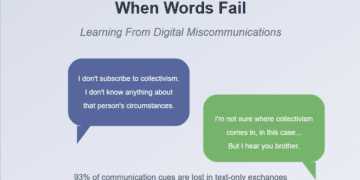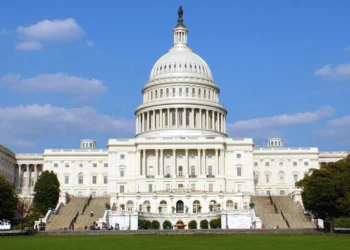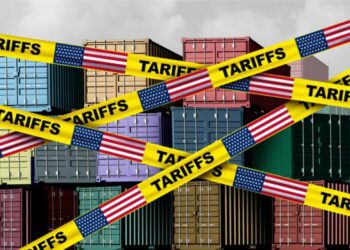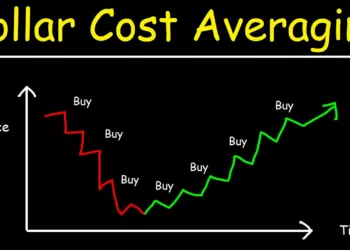Paying with cash or credit card is a common dilemma many consumers face daily. With the rise of rewards credit cards and digital payments, more people are ditching cash in favor of plastic. However, cash still has its benefits and there are times when it makes more sense to hand over paper bills instead of swiping a card. This post examines the pros and cons of each payment method in depth to help you decide when it’s better to pay with cash or credit.
Cash Provides More Tangible Spending Awareness
One of the biggest benefits of using cash is that it gives you a more tangible, visual sense of how much you’re spending. According to various research studies, people tend to spend 12-18% more when using a credit card instead of cash. This is because physically handing over cash bills and coins makes you more aware of how much money is leaving your wallet.
Seeing your cash reserves visibly deplete provides a natural visual cue that many experts say increases your spending awareness and discipline. In contrast, swiping a piece of plastic does not provide the same visual or tangible spending cue. The act of swiping a credit card does not feel the same as giving away hard-earned paper and coinage.
Additionally, counting out bills and looking at your remaining cash in hand can cause you to think twice about your purchases compared to mindlessly swiping plastic. The tangible, visual aspect of spending cash gives your brain an immediate feedback loop on how much you are spending.
Cash Allows Greater Control Over Budgets
In addition to increased tangible spending awareness, paying with cash also enables greater control and discipline when sticking to a budget. Cash’s tangible properties can assist budgeting efforts in a couple key ways.
“When you pay with cash, you feel the transaction more acutely. It’s as if you’re parting with a piece of yourself.” – Financial Psychologist, Dr. Jane Davis.
First, you can allocate a defined amount of bills and coins to bring with you when shopping or dining out. The physical cash notes literally represent the spending limit you have set for that trip. Once the cash is gone from your wallet, you stop spending, creating a natural limiting factor that prevents you from overspending.
With a credit card, you don’t have that same natural stopping point. There is no visual depletion of finite funds, so it becomes easier to overspend beyond budgeted amounts. Cash provides a built-in enforcement mechanism as you watch your available funds dwindle.
Second, cash allows you to divide and organize your budget into spending envelopes dedicated to certain categories. For example, you may have envelopes allocated for dining, entertainment, gas, groceries, etc. dividing your cash into these “spend envelopes” makes it easy to see how much you have available in each category and prevents overspending or shifting of funds. This budgeting tactic is much more difficult to implement when relying solely on credit cards.
Table 1: Cash vs. Card – A Comparative Analysis
| Aspect | Cash | Card |
|---|---|---|
| Tangibility | High | Low |
| Rewards/Incentives | Limited/None | Extensive |
| Budgeting Precision | High | Moderate |
| Security/Fraud Protection | N/A | High |
| Emergency Preparedness | High | Dependent on Acceptance |
Emergency Preparedness: The Cash Safety Net
While I predominantly favor card transactions, I’m not blind to the potential pitfalls. In emergencies or situations where card payments aren’t feasible, having cash on hand is indispensable. It ensures immediate access to funds, providing peace of mind in unforeseen circumstances.
Credit Cards Offer Alluring Rewards and Protections
While credit cards can sometimes encourage overspending due to their lack of tangible spending cues, they also come with some attractive perks and protections that cash does not offer.
Many credit cards today offer incredibly generous rewards programs on all purchases. From cash back, to airline miles, hotel points, and merchandise discounts, these programs put money back into your pocket on the items you were already planning to buy. Some cards offer 5% or more back in rotating quarterly categories while others provide accelerating category bonuses. A few even offer sign-up bonuses worth hundreds of dollars if you spend a certain amount in the first 90 days.
In addition to rewards, credit cards provide more protection against fraud or unauthorized charges compared to cash. Banks are required to limit customers’ liability for disputed credit charges under federal law. So if your card gets stolen or hacked, you’re not on the hook for hundreds of dollars in bogus charges. The bank must investigate promptly and refund any unauthorized transactions.
Most credit cards also include rental car insurance, extended purchase warranties, price protection benefits, and other valuable perks you would not receive when paying with cash. If you ever need to dispute a charge or return an item down the road, credit cards provide an extra layer of protection.
Rewards Galore: Unearthing the Potential
One of the primary reasons I favor card payments is the trove of rewards they offer. Credit cards come laden with perks, ranging from cashback on purchases to travel points that can whisk you away on your dream vacation. By meticulously selecting a card aligned with your spending habits, you can accumulate substantial savings over time.
Pro Tip: For an in-depth guide on personal finance, including credit and debt management, check out The Complete Guide to Personal Finance: In-Depth Answers to Your Credit and Debt Questions.
Table 2: Comparison of Credit Card Rewards Programs
| Reward Type | Card | Annual Fee | Sign-Up Bonus | Rewards Earning Rate | Redemption Rate |
|---|---|---|---|---|---|
| Cash Back | Chase Freedom Flex℠ | $0 | $200 | 5% on travel purchased through Chase Ultimate Rewards®, 5% on rotating quarterly categories (up to $1,500 on activation, then 1%), 3% on dining & drugstores, 1% on all other purchases | 1 cent per point |
| Cash Back | Discover it® Cash Back | $0 | Up to $1,500 cash back match at the end of your first year | 5% on rotating quarterly categories (up to $1,500 on activation, then 1%), 1% on all other purchases | 1 cent per point |
| Cash Back | Citi® Double Cash Card | $0 | None | 2% cash back on all purchases, 1% when you buy, 1% as you pay | 1 cent per point |
| Travel Rewards | Chase Sapphire Preferred® Card | $95 | 60,000 bonus points after you spend $4,000 on purchases in the first 3 months from account opening | 2 points per dollar on travel and dining worldwide, 1 point per dollar on all other purchases | 1 cent per point |
| Travel Rewards | Capital One Venture X Rewards Credit Card | $395 | 75,000 bonus miles one-time after you spend $4,000 on purchases in the first 3 months from account opening | 2 miles per dollar on all purchases | 1 cent per mile |
| Hotel Rewards | Hilton Honors Aspire Card from American Express* | $450 | 150,000 bonus Hilton Honors points after you spend $4,000 in eligible purchases on your new Card within the first 3 months of Card Membership, plus a Weekend Night Reward at a participating hotel after each account anniversary year | 14 points per dollar at Hilton properties, 7 points per dollar on travel purchased directly with airlines or Amextravel.com, 3 points per dollar on restaurants, 3 points per dollar on all other eligible purchases | 0.6 cents per point |
| Airline Rewards | United Quest℠ Card | $295 | 65,000 bonus miles after you spend $3,000 on purchases in the first 3 months from account opening | 2 miles per dollar on all United purchases, 2 miles per dollar at restaurants, 2 miles per dollar on select streaming services | 1 cent per mile |
Tips for choosing the best credit card rewards program:
- Consider your spending habits. What types of purchases do you make most often? Choose a card that rewards you for the things you spend money on most.
- Think about your rewards goals. Are you looking to earn cash back, travel rewards, or hotel rewards? Choose a card that offers the type of rewards you are interested in.
- Compare the annual fees and sign-up bonuses of different cards. Make sure the annual fee is worth the rewards you will earn, and that the sign-up bonus is something you can realistically qualify for.
- Read the fine print. Understand the terms and conditions of the rewards program before you apply for a card. Pay attention to things like the rewards earning rate, redemption rate, and any blackout dates or restrictions.
When Paying Cash Makes Sense
Given the unique benefits and drawbacks of each payment method, here are some of the most common instances when relying on good old cash may be smarter:
- Sticking to a Tight Budget: If you are following a strict budget or trying to curb overspending, the defined visual spending limits of cash can assist your discipline. Bring only the exact amount of cash you are comfortable spending for a shopping trip.
- Avoiding Credit Card Debt: Relying on cash instead of credit for optional or discretionary purchases can help avoid falling into credit card debt that is difficult to pay off. Use cash for entertainment, hobbies, and other non-essential spending to keep your credit card balance manageable.
- Teaching Children Financial Literacy: Having children practice managing cash allowances can help teach valuable financial literacy skills at a young age as kids can physically see money leave their hands. Let them get comfortable handling cash before getting a debit or credit card.
- Transactions at Small Businesses: Some local small businesses prefer cash payments to avoid expensive credit card processing fees. Cash is also easier for small operations without complex point-of-sale systems. Keep some cash on hand to support local businesses who may not accept cards.
- Tipping: Tossing spare change into a tip jar is often easier than swiping a card to leave a tip for quick service transactions like coffee shops or food trucks. Keep a few small bills handy for easy tipping.
- Parking Meters: Having quarters or coins on hand helps when needing to feed a parking meter for short stops. While some meters accept cards, cash is quicker and easier for brief errands.
When It Pays to Use Credit
While cash has its place, here are some prime examples of when relying on a credit card may be the smarter move:
- Large Purchases: Buying a big ticket item like a laptop, TV, appliance, or furniture is often safer on a credit card in case refunds or returns are needed later. Credit cards also offer purchase protection plans for large purchases against damage or theft.
- Online Shopping: Any type of online shopping or e-commerce transactions should always be done with a credit card to minimize fraud risk. Entering credit card details is safer than debit card information when shopping online.
- Maximizing Rewards: Use a rewards credit card for as many of your regular everyday purchases as possible to maximize the points, miles, and cash back you earn. Just be sure to avoid overspending just to chase rewards.
- Business Travel: Credit cards that offer rental car coverage, trip delay reimbursements, lost luggage reimbursement, and other travel protections are extremely useful when traveling for work. They also provide better fraud security.
- Unexpected Emergencies: Having emergency access to credit via your card can be a financial lifesaver in situations where your normal cash reserves may be low. But be sure to have a plan for paying off the balance in a timely manner.
Finding the Right Balance for You
As we can see, there are compelling benefits to both cash and credit in certain situations. There is no universally right answer to the cash vs card dilemma. Each has pros and cons that may make it advantageous depending on the context and individual consumer.
The best practice is to take time to reflect on your unique financial situation, spending tendencies, benefits needs, and budgeting requirements to decide what blend works best for you. If carrying credit card debt or overspending is an issue, rely more heavily on cash. If you enjoy traveling and maximizing rewards points, use cards responsibly. Finding the right balance leads to smart money management.
Remember, your financial strategy is a reflection of your unique circumstances and goals. Embrace the power of choice and let it be a driving force in your path to financial success.
Disclaimer: This blog post provides general advice and should not be considered as professional financial guidance. Please consult a certified financial advisor for personalized recommendations.

Note: This blog post is written by a professional trader and investor based on personal experiences and opinions. It is not intended as financial advice. Always conduct your own research and consult a financial advisor before making any financial decisions.















































